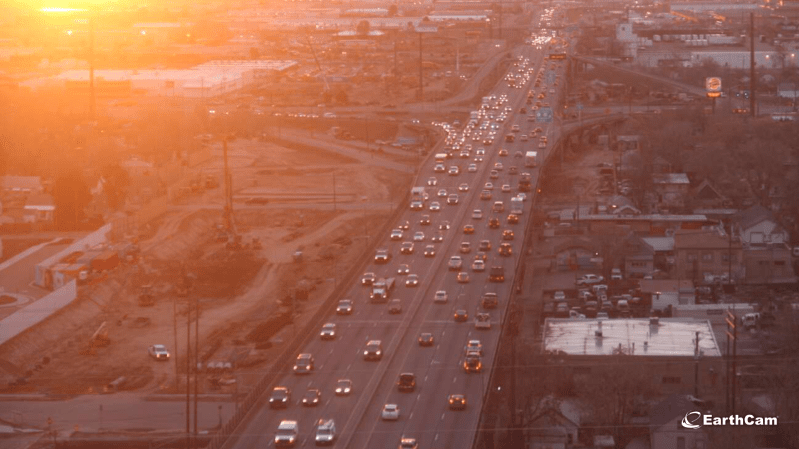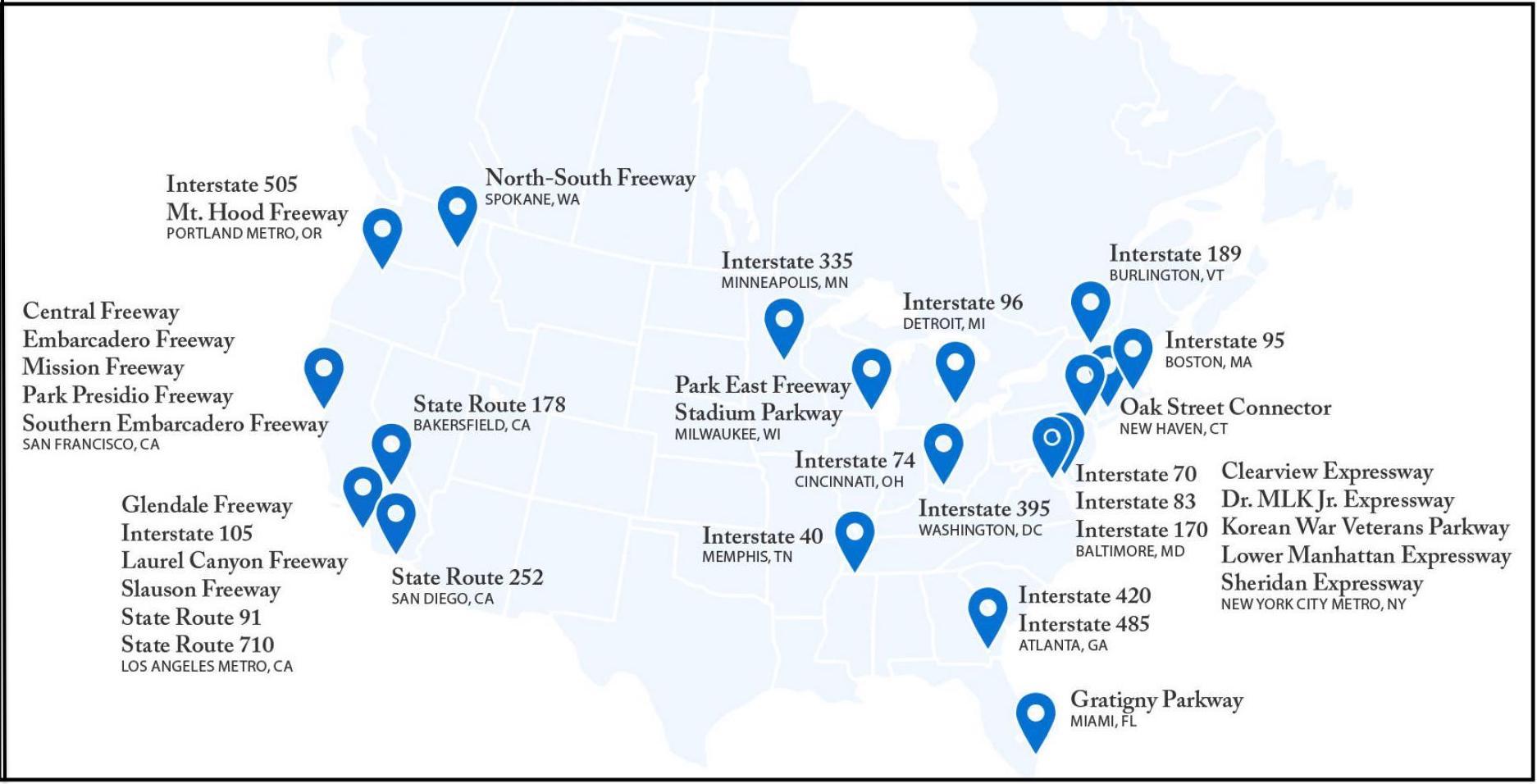Oakland Plans to Tear Down Major Freeway While Denver Keeps Expanding I-70

In a new story published in Grist, author Nathanael Johnson covers how Oakland, California is joining a growing number of cities planning to tear down urban freeways.
The move in Oakland shows that forward-thinking officials elsewhere are starting to understand something: The problems associated with mega-motorways in urban neighborhoods outweigh the benefits.
Here in Denver, activists were unable to convince elected officials like Mayor Michael Hancock and former Gov. John Hickenlooper to stop the $1.2 billion expansion of I-70. It started construction last August and is already bulldozing its way through the mostly Latino neighborhoods of Elyria, Swansea and Globeville. But some activists say it’s not too late to kill the project.
Even though the highway’s expansion runs against the pro-environment and social justice values promised in Gov. Jared Polis’s campaign, he has not taken a position on the Central 70 project, according to Laurie Cipriano, his press secretary.
This means that the actions of the state’s top elected officials support the continuation of car dependency in Colorado. And as the pressures of population growth, traffic, worsening air pollution and climate change grow, their position seems especially backwards today.
But the arguments that failed to convince local officials have successfully persuaded those in 15 North American cities where freeways have already been taken down or there are plans to do so, according to the Congress for New Urbanism.
The same organization mapped 37 cities where officials halted highway expansions after construction had already started.

In Oakland, the I-980 freeway that cuts through the city “remains a scar on our urban fabric,” Mayor Libby Schaaf said in the Grist article. “In its place we want livable infrastructure that creates local economic opportunity, reconnects neighborhoods and connects the region.”
Johnson’s story went on to discuss the reasons why the freeway should be removed, which are similar to discussions that got nowhere in Denver:
[Freeways] pepper nearby neighborhoods with soot; they break up cities, making it harder to walk across town; they take up acres of space that could go to parks, houses, and public transit.
Then there’s the crisis of climate change. Transportation, the world’s biggest source of greenhouse gases, will require an overhaul to become carbon free. That means rethinking and rebuilding every aspect of getting around, from the internal combustion engine to the roadways on which we move. Highways, after all, were made to serve machines forged and fueled by hydrocarbons.
In Colorado, the early impacts of climate change may include the bark-beetle’s decimation of many of the state’s forests and the growing frequency floods, fires and droughts.
Meanwhile, Denver hasn’t made any progress in its goal of reducing single-occupancy vehicle trips. Currently 73% of trips in Denver happen in a car with just one person. The city will fail to cut that number to 60% by next year, which is its stated goal. But but if it’s serious about reducing those trips to 50% by 2030, widening a highway is no way to get there.
And expanding I-70 will ultimately aggravate air quality problems in an area already populated with an unusually high number sick children: They already live in a neighborhoods infamous for being the most polluted zip code in America.

Perhaps the dumbest reason for adding more lanes is the idea that it reduces traffic congestion. After governments widen urban freeways, we know that within two years, traffic is often just as bad as it was before, or worse.
Remember the promise of the $1.67 billion I-25 T-REX expansion?
How’d that work out?
The reason that adding more lanes doesn’t improve traffic is simple: When highways add capacity, more people end up driving. This well-known phenomenon, known as induced demand, has been proven in many studies. And the people at agencies like Colorado Department of Transportation don’t like to talk about it. According to Streetsblog USA:
Highway planners are failing to incorporate this effect into their models, said Ronald Milam, the author of a study about induced demand. “It is rare to find an induced travel analysis in most transportation infrastructure design or environmental impact analysis.” That means transportation agencies are green-lighting money for highway expansions that are destined to become congested again only a short time later.

While Denver continues banging its head on the wall trying to solve traffic problems with solutions that we know won’t work, Oakland imagines a better future itself.
After the city removes I-980, it will gain 13 blocks where it could install “leafy boulevards, and affordable housing,” according to Grist. These benefits could rest above new subway lines with the capacity to quickly and efficiently transport a far greater number of people than the freeway ever could have.
Here, Unite North Metro Denver, a neighborhood association, proposed a similar alternative to the I-70 expansion. And while their activism failed, an advocate for tearing down Oakland’s freeway makes another point that applies here: This place belongs to us and we have the power to stop making the same mistakes.
“The key thing is that this is public land,” said Chris Sensenig of ConnectOakland to Grist. “Public land is for the public good. We should be seeking to maximize the public good, not just accepting whatever happens to already be there.”
It may be hard to stop a project like I-70’s expansion. But other cities have done it. If you think elected officials should put an end to continuing the region’s addiction to cars, let them know.
To contact Mayor Hancock, call 720-865-9000 or send an email via this web form. To contact Gov. Polis, call (303) 866-2885 or send a message via this web form.
Streetsblog Denver informs the movement for sustainable transportation and a livable city. Give $5 per month.


